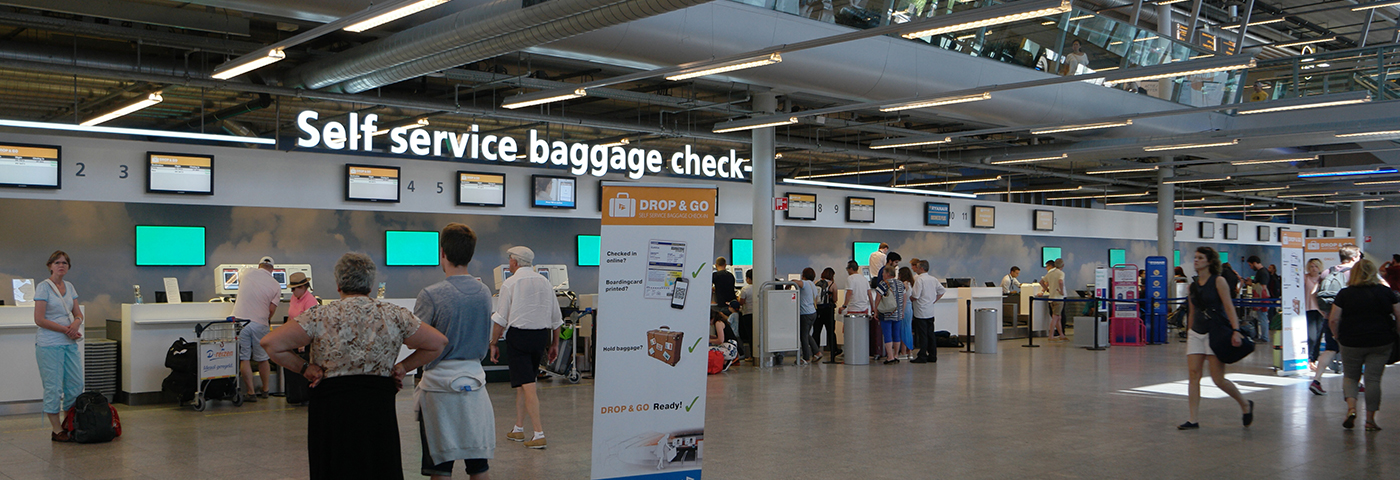Last weekend I paid for my shopping at a self-service till. I swiped my credit card across the automatic turnstile on the Underground. I streamed a movie from my Netflix subscription. I did them all by myself, happy in the convenience. And I didn’t really stop to wonder what had happened to the checkout assistant, ticket collector or video shop owner who I would have encountered not that long ago.
In February this year, computer scientist Moshe Vardi estimated that 50% of the world could be out of a job in 30 years. And he didn’t just mean those blue collar jobs that seem the most ready for robots. According to a chillingly-titled article on Business Insider: “A Venture Capital Firm Just Named An Algorithm To Its Board Of Directors”. No wonder that when Barack Obama made his farewell address all that time back in January 2017, he warned that: “the next wave of economic dislocations won’t come from overseas. It will come from the relentless pace of automation that makes a lot of good, middle-class jobs obsolete.”
How this story continues is well known. Barack Obama gets made redundant, and sees his job outsourced to a 24hr Tweetbot. So he does what people do when they have a bit of time off. He goes on holiday… and images of him jetskiing with Richard Branson get shared relentlessly on social media.
That’s the point. When it boils down to it, tourism is an industry designed to fill up the time we have available when we aren’t working. We think it is all airports and cruise ships. But just as most of us don’t bag the invite to hang out with Mr Branson on Necker, so most tourists don’t get on a plane or float off round the world in a gin palace. It’s true that the figure that always gets quoted is how one billion tourists (and rising) travel internationally in a year. But what of the tourists who didn’t leave their home country, but still used its tourism, hospitality and leisure services? In 2012, the UNWTO estimated 83% of tourists were domestic. They accounted for 74% of arrivals and 73% of total overnights.
That’s just accommodation. I slept at home on Friday night. But I went to an art gallery and a museum. And I joined the 4.5 million+ people who each year spend money at one of London’s busiest attractions: Borough Market. I am a domestic tourist.
Time to start preparing
We don’t know how society will respond to ever increasing automation. As the numbers without meaningful work swell, will we continue to blame immigrants for stealing our jobs, while denigrating those not working as lazy shirkers? Or will we reflect on how the fetishation of productivity lies at the root of so many problems – from climate change to ever-escalating stress – and redesign our work structures to create more balanced, richer, sustainable-in-every-respect lives?
The tourism industry is currently entering into much soul searching about how to respond to the phenomenon of overtourism that certain heavily hyped destinations are experiencing. As we have these discussions, we should also see these swelling crowds as coal-mine canaries for a not too distant world, one where a lot more people have a lot more time on their hands for something-other-than-work. How will we cater to their needs? Do we just need to up the productivity and provide more of the same, or might our role be something more?
Over the weekend I read a book called Utopia for Realists by the Dutch thinker Rutger Bregman. It explores this future of reduced working hours in far more depth than I can here, and I’d recommend everyone in tourism to read it. “Swimming in a sea of spare time will not be easy,” he writes. “A twenty-first century education should prepare people not only for joining the workforce, but also (and more importantly) for life.”
There’s going to be a lot more demand on tourism for its services in the years to come. The real challenge isn’t going to be how to cope with the numbers. It will be with the quality of experiences we provide. It’s time to start preparing.

